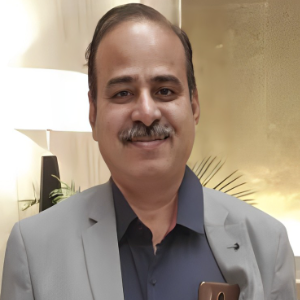Hair transplantation is a procedure used to address hair loss, particularly male-pattern baldness. During the procedure, a surgeon removes hair follicles from a healthy part of the scalp and transplants them to the affected area. Hair transplantation has been used since the 1950s. However, the techniques have undergone considerable improvements since then. Today, the procedure is a relatively simple medical one that leads to successful results, provided the patient is a suitable candidate for the procedure. In recent years, advances in follicular-unit extraction (FUE) have made the procedure increasingly preferable for those seeking a hair transplant. During FUE, the surgeon extracts individual follicular units from the donor area, rather than a strip of skin. This results in minimal scarring, a shorter healing period, and a natural-looking result. Despite its success rate, hair transplantation is not without its risks. Scarring, infection, and unnatural-looking results may occur in some cases. To reduce the risk of complication, only a board-certified dermatologist with extensive experience in hair restoration should be consulted. Individuals considering hair transplantation should take into account that it is not a miracle cure for baldness. While it can restore lost hair, it does not prevent future hair loss. Thus, the patient should use hair loss medications or use it in combination with other treatments available for baldness. No matter the procedure used, hair transplantation is successful when the patient works with a qualified dermatologist or hair restoration specialist to ensure the best results.

Ravi M Rathod
KMCRI, India
Dechelette Corinne
La Peau Autrement, France
Irina Sergeeva
Novosibirsk State University, Russian Federation
George Sulamanidze
Plastic Surgeon at Clinic of Plastic and Aesthetic Surgery and Cosmetology TOTALCharm, Georgia
Nino Tsamalaidze
Ltd Karabadini+, Georgia
Lina Petrossian
California University of Science and Medicine, United States
Surajbala Khuraijam
Manipur Health Services, India
Shrutimita Pokhariyal
Symbio, India
Yasser Mohammed Hassanain Elsayed
Egyptian Ministry of Health, Egypt



Title : Paraneoplastic Autoimmune Multiorgan Syndrome or PAMS: Paraneoplastic pemphigus revisited
Sergei A Grando, University of California Irvine, United States
Title : Modern non-invasive methods for in vivo assessment of skin
Georgios N Stamatas, SGS, France
Title : Personalized and precision dermatology through the view of biodesign-inspired translational & data-driven applications: Revolutionary skin treatments for every concern in clinical dermatology integrating skin care experts and consumers
Sergey Suchkov, N.D. Zelinskii Institute for Organic Chemistry of the Russian Academy of Sciences, Russian Federation
Title : The next generation of threads: Lifting, volumization, and biostimulation in one powerful triple action
George Sulamanidze, Plastic Surgeon at Clinic of Plastic and Aesthetic Surgery and Cosmetology TOTALCharm, Georgia
Title : Lymphoproliferative diseases in the practice of a dermatologist
Irina Sergeeva, Novosibirsk State University, Russian Federation
Title : Art, skin, and dermatology: Interdisciplinary perspectives
Dechelette Corinne, La Peau Autrement, France
Title : Comparative efficacy of omalizumab and dupilumab in children with Chronic Spontaneous Urticaria (CSU): A retrospective cohort analysis
Molynna Nguyen, University of Toledo, United States
Title : "Mirror mirror on the skin” — A low-cost community strategy to reduce melanoma disparities in Washington, D.C.
Kayla Sampson, Georgetown University School of Medicine, United States
Title : Vitiligo: Not just an aesthetic disorder
Mateja Starbek Zorko, University Medical centre Ljubljana, Slovenia
Title : Personalized and Precision Medicine as a unique avenue to have the healthcare model renewed to secure the national biosafety: Advanced skincare solutions in individualized cosmetology, reconstructive plastic surgery and the modern beauty
Sergey Suchkov, N.D. Zelinskii Institute for Organic Chemistry of the Russian Academy of Sciences, Russian Federation